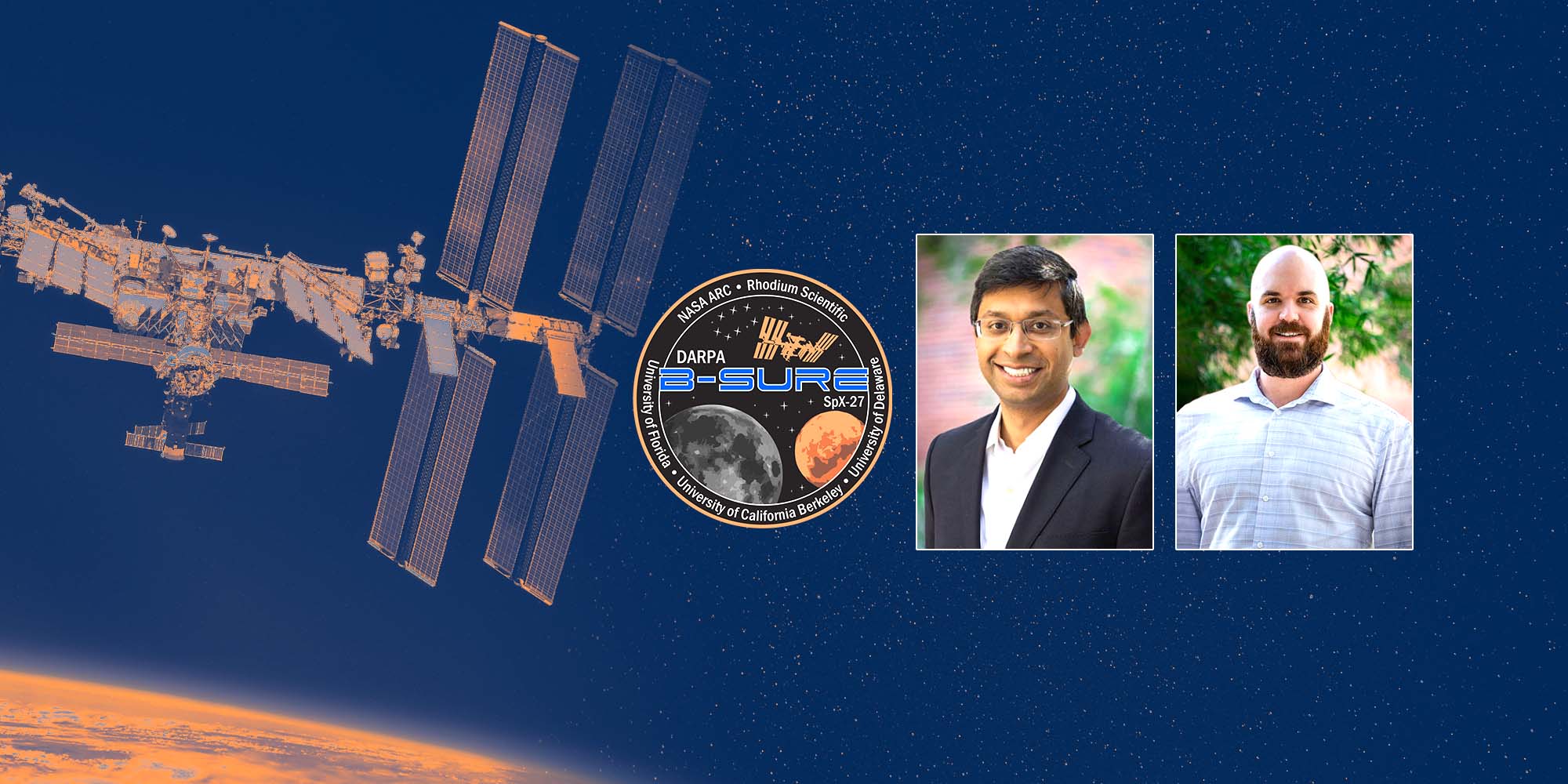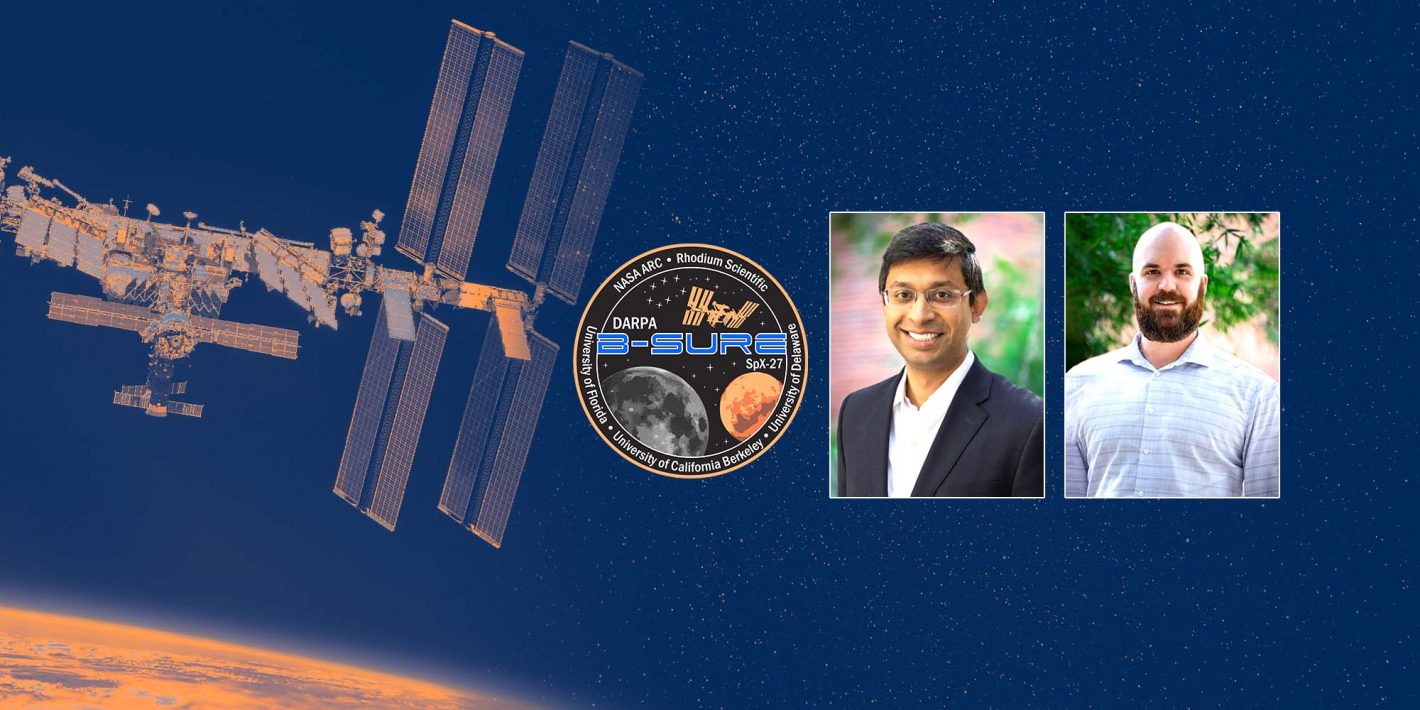
L-R: Amor Menezes, Ph.D., assistant professor, MAE, and Sean Niemi, Ph.D., instructional assistant professor, MAE
With the goal of creating a resilient supply chain for a sustained presence in space, researchers at the University of Florida (UF) are bioengineering microbes for experimentation on the International Space Station (ISS) they hope will reliably produce biopolymers, nutraceuticals, and antibiotics in variable gravity conditions.
The space environment is uniquely challenging, with vastly different levels of gravity, radiation, temperature, and pressure, all creating stress on Earth-based biological processes and inhibiting the outputs of microbial biomanufacturing. By providing a better understanding of how microbes adapt and function in the stresses of space, this investigation will support measures to maintain and enhance biomanufacturing output in an environment that must be self-sustaining — where space missions must have everything they need to manufacture necessities.
Among the inspirational outcomes of the project is reducing the economic and energy costs to transport equipment and consumables from Earth to the Moon and Mars. Payload expenses for the most recent launch of SpaceX’s Falcon Heavy spacecraft showed a cost of $5,000/kg for low Earth orbit and $18,800/kg for a payload destined for Mars.
Led by Amor Menezes, Ph.D., assistant professor in the Department of Mechanical and Aerospace Engineering (MAE) at UF, the Biomanufacturing: Survival, Utility and Reliability beyond Earth (B-SURE) team is funded through a $2.8 million grant from the Defense Advanced Research Projects Agency (DARPA) for biomanufacturing research in space that includes at least one flight to the ISS for testing.
Joining Dr. Menezes’ team are UF colleagues Sean Niemi, Ph.D., an instructional assistant professor of MAE in the Herbert Wertheim College of Engineering, and Jamie Foster, Ph.D., a professor in the Department of Microbiology and Cell Science at UF’s Institute of Food and Agricultural Sciences (IFAS), as well as personnel from the University of California, Berkeley, the University of Delaware, NASA Ames Research Center, and Rhodium Scientific, a mission integrator who translates lab protocols for spaceflight operations and who has facilities at NASA Kennedy Space Center.
Rhodium Scientific will send the flight payload on SpaceX CRS-27 aboard the SpaceX Falcon 9 spacecraft, slated for launch at 8:30 pm on March 14. The B-SURE team will extrapolate their space data over six to nine months and re-engineer the microbes for better-performing biomanufacturing outcomes. Upgraded microbes may be sent back to the ISS on a subsequent mission.
Dr. Menezes’ team will focus on the gravitational aspect of space biomanufacturing. Using simulators, his lab has observed gravity’s effect on bioproduction efficacy. Data from the space environment will also give his team insight into engineering more accurate simulators.
